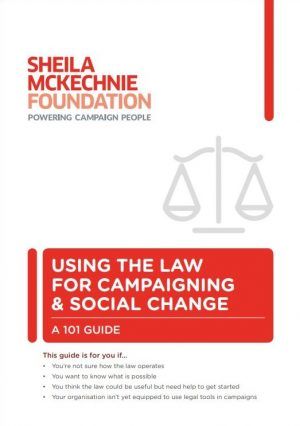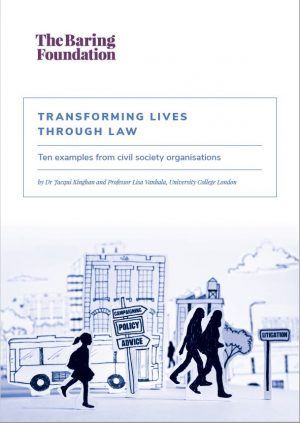In June 2016 the United Nations Committee on the Rights of the Child published its observations on the UK’s implementation of the rights contained in the UN Convention on the Rights of the Child. It highlighted many areas where more needs to be done to realise the rights of children and young people in the UK. Many of the UN’s 150 recommendations reflect the concerns expressed by civil society in the lead up to the report, and will help the voluntary sector make their arguments for children’s rights heard in the years ahead.
At Clan Childlaw we’re grateful for the support we are receiving from the Baring Foundation’s Strengthening the Voluntary Sector programme to promote the use of law and human rights by the voluntary sector to advance children’s rights in Scotland.
Clan Childlaw is a Scottish charity which aims to improve life chances for children and young people by providing free legal advice and representation, delivering training on child law, and contributing to policy development.
We are coordinating a Children’s Rights Strategic Litigation Group which aims to advance the recognition, development and realisation of children’s rights in Scotland by the use of strategic litigation. In general terms, strategic litigation means taking legal action with a view to securing broader social change. It can be a very effective policy tool for challenging legislation or practice suspected of breaching human rights. It is at the sharp end of legal advocacy and often the threat of litigation is enough to encourage change.
The Group provides a forum for exchanging views, knowledge and experience. It connects lawyers and voluntary sector organisations with an interest in using the law, legal processes and human rights to advance policy, and facilitates collaboration on issues of common concern.
In October we held a Roundtable on Children’s Rights in Edinburgh where we brought together over 60 representatives of voluntary organisations, the legal profession and other professionals working in children’s rights to talk about how we can better use law and human rights to advance policy in relation to children’s rights. It was a great opportunity to raise awareness of the different ways law can be used to inform, persuade and challenge authorities, and spark interest among voluntary sector organisations which may not have considered this approach before. We had some great conversations about the opportunities and challenges of this approach – you can read more about our event at http://www.clanchildlaw.org/policy/using-law-to-advance-policy/.
In the coming year there is scope for some significant changes in Scotland on children’s rights – we are expecting proposals to raise the minimum age of criminal responsibility from 8 to 12 and to completely prohibit the physical punishment of children, both recommended by the UN Committee. There will also be changes to the so-called ‘Named Person scheme’ following the Supreme Court’s decision that it breached the right to privacy (you can read more about our role in this case here: http://www.clanchildlaw.org/policy/current-issues/information-sharing/). Progress in being made, slowly but surely.
The voluntary sector has a vital role to play in holding decision-makers and public authorities to account on children’s rights. Actively using the law will help make these rights real and hopefully remove some of the disadvantages faced by children and young people today.
Janet Cormack, Strategic Litigation Group Coordinator, Clan Childlaw
January 2017
Views expressed in this post do not necessarily reflect those of the Baring Foundation.

